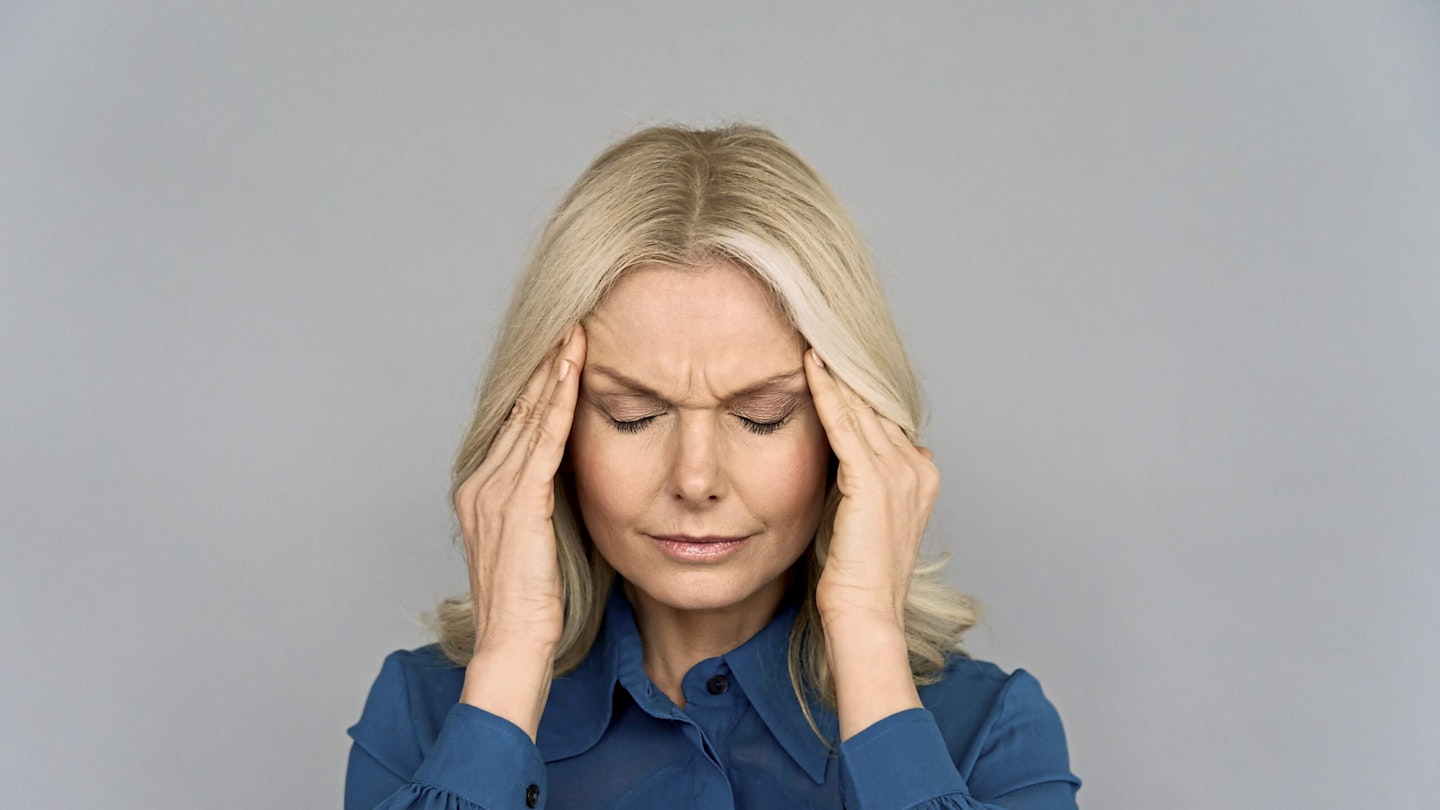Is it another hormonal headache or is caffeine the culprit? Pain in different parts of your head could indicate different issues about your health…
It’s estimated that more than 10 million adults in the UK are affected by bad headaches. But not every headache is the same. In fact, the type of pain, location, intensity and duration can tell us different things about what’s causing it — and mean different things for our health.
Dr Mona Ghadiri-Sani, Consultant Neurologist and Headache Specialist of The Walton Centre NHS Foundation Trust, says: ‘If you’re suffering with headaches, keep a diary of the pain, duration and any possible triggers. This may include things like stress, diet, caffeine or alcohol consumption, hormone changes, dehydration, eye strain and bad posture.
‘Not only will a headache diary help you to notice any patterns, but a lot of the more advanced treatments can’t be accessed without one.
‘Remember, most of the time a headache won’t be serious. However, if you experience new onset headaches, especially if you’re over 55 or the headache is brought on suddenly by coughing, sneezing or exercise, always go and see your GP. It’s better to get checked over than to worry.’
Here Dr Ghadiri-Sani looks at some of the headaches we may experience…
Tension headaches
It’s vital to identify the difference between a tension headache and a migraine, because treatments are so different. Tension headaches usually present with a band of mild aching pain around the head, often brought on by stress or fatigue. But this kind of headache is not debilitating, and you wouldn’t feel nausea, or light or noise sensitivity.
To prevent tension headaches, try to reduce stress as much as possible through exercise, good hydration and sleep hygiene.
If they’re irregular and you’re only experiencing them once or twice a week, it’s fine to treat tension headaches with simple over-the-counter medication such as paracetamol.
However, make sure you don’t choose painkillers that contain opioids or caffeine, as this can worsen symptoms.
Caffeine headaches can feel the same as tension headaches. If you’re noticing headaches when your next dose of caffeine is due, try cutting down or switching to decaf drinks instead.
Migraines
A migraine is one of the most common headaches, especially in women. Unlike tension headaches, migraines are usually one-sided (the side can switch), and are associated with nausea and light and noise sensitivity.
Other symptoms can include fogginess, neck pain and stiffness, dizziness, visual disturbances, slurring of speech, pins and needles and numbness.
The good news is that there are lots of new, effective treatments for migraine. Identifying any triggers through a diary can also help.
For example, skipping meals, sleeping too much or too little, or menstruation can all trigger migraines. If a migraine is being triggered by changes in hormone levels during the menopause, HRT may also help some patients, if there are no contraindications.
Cluster headaches
Cluster headaches usually present with a severe, one-sided, sharp, shooting, drilling pain. Symptoms can include a red and watering eye, and a blocked or runny nose — all on the side of the severe headache — and usually at around the same time every day.
These headaches happen in clusters, where you’ll have the pain for weeks and then nothing for several months or years. A particular trigger can be alcohol.
During a cluster attack, patients are very agitated and are usually rocking or crying in pain. Cluster headaches need to be treated urgently, so you should see a GP as soon as possible the first time you experience one.
Thunderclap headaches
A thunderclap headache is a very severe headache which comes on suddenly, usually at the back of the head, like being hit on the head with a baseball bat. They can be associated with generally feeling very unwell, loss of consciousness, collapse, disorientation, confusion and vomiting. A thunderclap headache is a medical emergency, so always call 999 or go to the nearest A&E.
Sinus headaches
Sinus headaches usually present around the forehead and nose. Triggers can be anything from sinus infection to polyps, severe hay fever or congestion. However, most patients diagnosed with sinus headaches are likely to have migraines rather than sinus infections, as these often present with similar symptoms, so always see a doctor to be assessed.
Please be aware that these are generalisations and there can be variations to the normal trend. Please seek help from your doctor if your headaches are new or unusual in any way.
● For more info, please visit thewaltoncentre.nhs.uk
